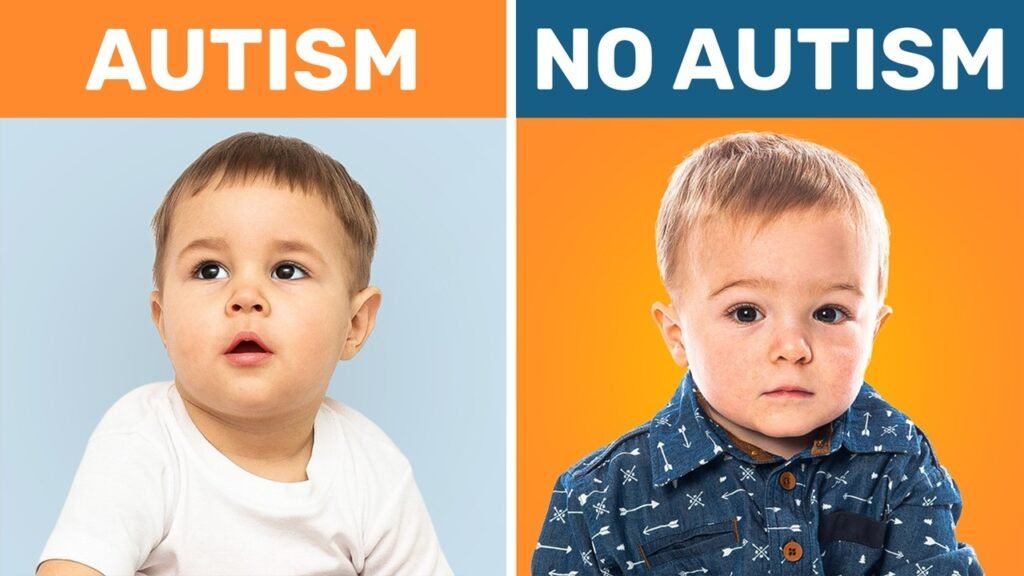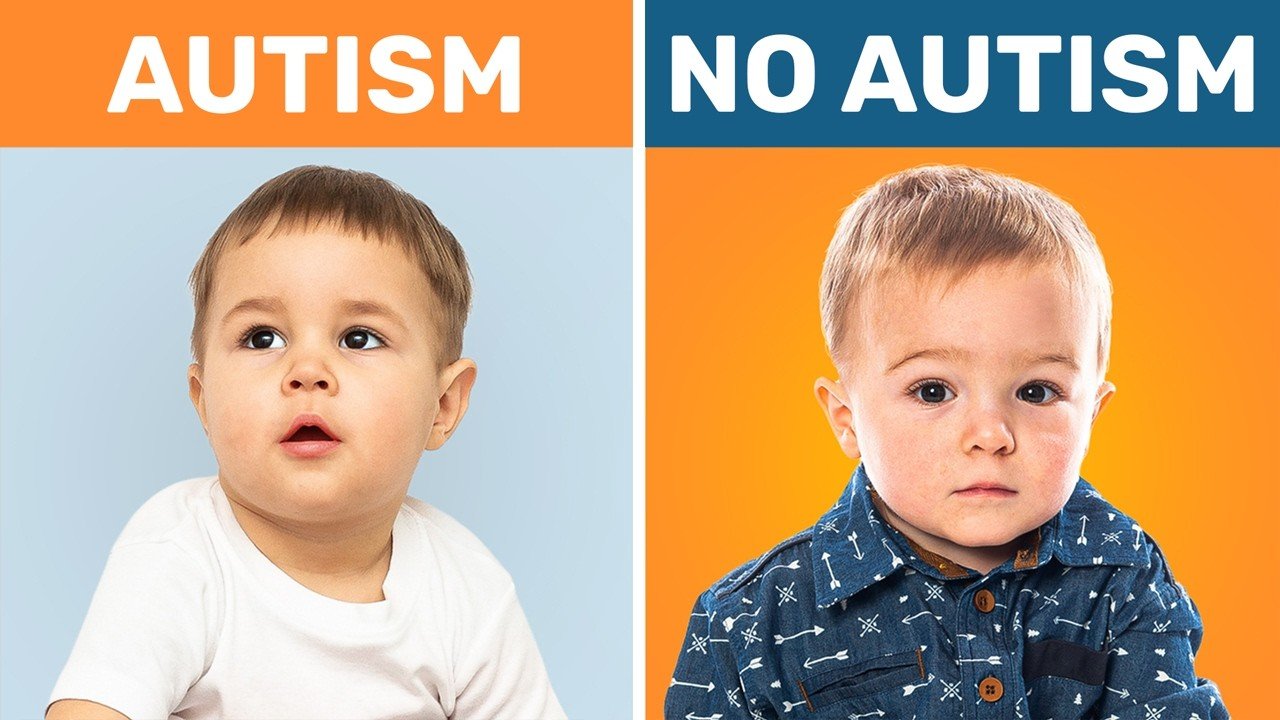In this video, you will be guided through 10 subtle signs of autism that most parents tend to overlook. These signs range from your child’s eye contact during play to how they express their excitement with you. Simple tests like the “stop and watch” game will be demonstrated, alongside explanations of what to observe in their pointing, gestures, language development, and pretend play. It’s important to note that spotting these signs doesn’t automatically mean your child has autism, but they can serve as indicators to consult with a healthcare professional for further evaluation. Early intervention can truly make a significant impact on a child’s life, so being able to recognize these signs early on can be incredibly beneficial. As you watch this video, keep in mind that it aims to provide information and awareness rather than a diagnosis tool for at-home use.
Remember, the content shared in this video is not a replacement for professional medical advice, and it is always advisable to seek guidance from a healthcare provider if you have any concerns about your child’s health. The video emphasizes the importance of not delaying seeking medical advice and reaching out to a doctor or qualified health professional if needed. The goal is to equip you with knowledge about potential signs of autism and encourage proactive conversations with healthcare providers for appropriate assessments and interventions. Your awareness and understanding of these signs can play a crucial role in supporting your child’s overall well-being and development. So, sit back, watch, and take note of the 10 subtle signs of autism most parents tend to miss.

Lack of Eye Contact
Children with autism may avoid eye contact or have difficulty sustaining it during interactions
One subtle sign of autism that parents may miss is the lack of eye contact in children. It is common for children with autism to avoid making eye contact or find it challenging to sustain eye contact during interactions. This difficulty in maintaining eye contact can be a result of sensory overload or a lack of understanding social cues. As a parent, it is essential to observe your child’s eye contact patterns during play or when engaging in conversations. If you notice consistent avoidance of eye contact, it may be a subtle sign of autism that warrants further evaluation by a healthcare professional.
Difficulty with Social Interactions
Children with autism may struggle with social cues and have challenges in making friends or engaging in conversations
Another subtle sign of autism that parents may overlook is difficulty with social interactions. Children with autism often find it challenging to understand social cues, leading to struggles in making friends or engaging in conversations with peers. They may have difficulty interpreting non-verbal communication, such as facial expressions or body language, which can impact their ability to form social connections. As a parent, it is essential to observe your child’s interactions with others and seek support from professionals if you notice persistent challenges in social situations.
Repetitive Behaviors
Children with autism often engage in repetitive movements or actions, such as hand-flapping or lining up toys
Repetitive behaviors are common in children with autism and can be a subtle sign of the condition. Children with autism often engage in repetitive movements or actions, such as hand-flapping, rocking back and forth, or lining up toys in a specific order. These repetitive behaviors can serve as a way for children with autism to self-regulate or cope with sensory overload. As a parent, it is crucial to observe your child’s repetitive behaviors and communicate with healthcare professionals to understand the underlying reasons and seek appropriate support.
Delay in Speech or Language Development
Children with autism may have delays in speech development, including not babbling by 12 months or not saying single words by 16 months
Speech and language development milestones play a crucial role in identifying subtle signs of autism in children. Delay in speech or language development can be a red flag for autism. Children with autism may exhibit delays in speech milestones, such as not babbling by 12 months or not saying single words by 16 months. These delays can stem from difficulties in communication and social interaction, which are hallmark features of autism spectrum disorder. As a parent, it is essential to monitor your child’s speech development and seek early intervention if you notice significant delays.
Limited Interest in Pretend Play
Children with autism may not engage in imaginative or pretend play, such as pretending to feed a doll or engage in make-believe scenarios
Pretend play is a significant aspect of a child’s social and cognitive development, and the lack of interest in this type of play can be a subtle sign of autism. Children with autism may struggle to engage in imaginative or pretend play, such as pretending to feed a doll, engage in make-believe scenarios, or participate in role-playing activities. Their limited interest in pretend play can stem from challenges in social interaction, communication, and imagination. As a parent, it is crucial to observe your child’s play behavior and seek guidance from professionals if you notice a lack of engagement in pretend play activities.
Difficulty with Changes in Routine
Children with autism often struggle with changes in routine or transitions, becoming upset or anxious when there is a deviation from the expected schedule
Children with autism thrive on structure and routines, and any deviation from their expected schedule can cause distress. Difficulty with changes in routine is a subtle sign of autism that parents should pay attention to. Children with autism may become upset, anxious, or exhibit challenging behaviors when faced with changes in routine or transitions. This difficulty stems from a preference for predictability and sameness, which are characteristic features of autism spectrum disorder. As a parent, it is crucial to establish consistent routines for your child and provide support during transitions to help them navigate changes effectively.
Unusual Sensory Responses
Children with autism may have sensory sensitivities, such as being unable to tolerate certain textures, sounds, or lights
Unusual sensory responses are a common feature of autism spectrum disorder and can manifest as sensory sensitivities in children. Children with autism may have difficulty tolerating certain textures, sounds, lights, or smells, which can trigger sensory overload or meltdowns. These sensory sensitivities can impact a child’s daily functioning and contribute to challenges in social interactions or communication. As a parent, it is essential to observe your child’s reactions to sensory stimuli and create a sensory-friendly environment to support their sensory needs.
Repetitive Speech Patterns
Children with autism may repeat phrases or lines from movies or books excessively, without context or understanding
Repetitive speech patterns are a subtle sign of autism that parents may overlook. Children with autism may engage in repeating phrases or lines from movies, books, or songs excessively, often without context or understanding of the content. This repetitive speech can serve as a form of self-stimulation or a way to cope with anxiety or sensory overload. As a parent, it is crucial to observe your child’s speech patterns and seek guidance from professionals if you notice persistent and repetitive speech that interferes with communication and social interactions.
Narrow Range of Interests
Children with autism may have intense, focused interests in specific topics or objects, to the exclusion of other activities
A narrow range of interests is a common characteristic of autism spectrum disorder and can serve as a subtle sign of the condition. Children with autism may exhibit intense, focused interests in specific topics, objects, or activities, often to the exclusion of other interests. These intense interests can be all-consuming and interfere with social interactions, communication, and daily routines. As a parent, it is essential to observe your child’s interests and seek guidance from professionals if you notice a preoccupation with specific topics that limits their engagement in other activities.
Difficulties with Emotional Regulation
Children with autism may have difficulty regulating their emotions, leading to meltdowns or tantrums in response to frustration or overstimulation
Emotional regulation difficulties are common in children with autism and can present as challenges in managing emotions, leading to meltdowns or tantrums. Children with autism may struggle to regulate their emotions in response to frustration, overstimulation, or changes in routine. These emotional outbursts can impact a child’s ability to cope with stress and navigate social situations effectively. As a parent, it is essential to support your child in developing emotional regulation skills and seek assistance from professionals to implement strategies that promote healthy emotional expression and coping mechanisms.

